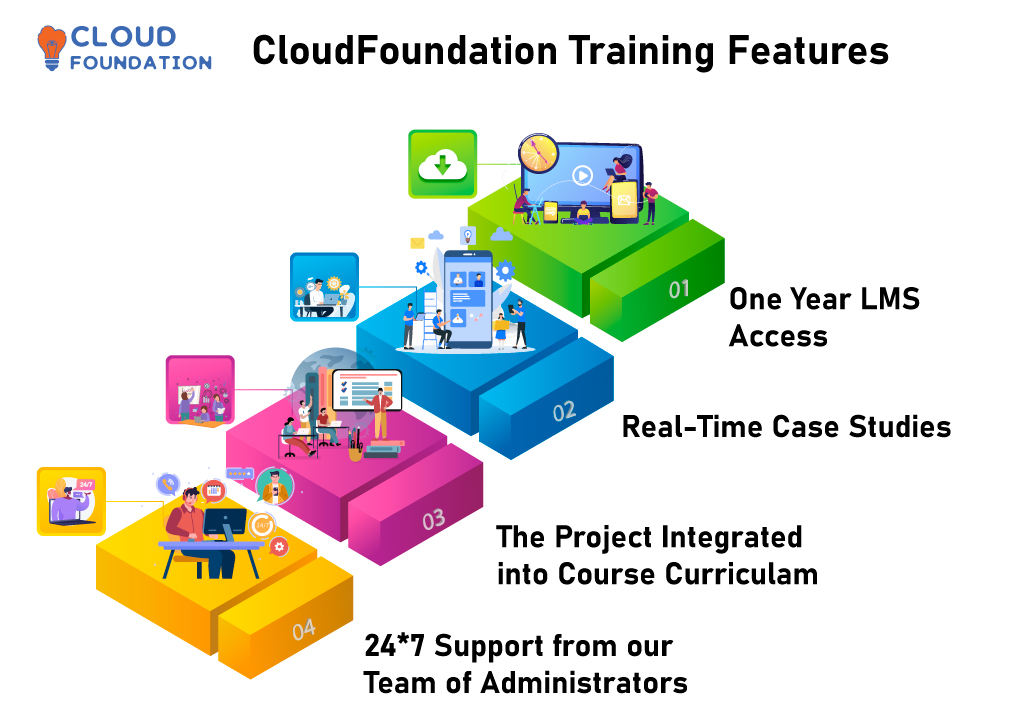Golang Training – The only Course you need
⏰24 hours | ▶️ 24 Videos | 📣 49 Participants | 🔥11 Reviews
Choose a Plan that Works for You
Self Paced
- Advanced sessions
- Interview Q&A
- Free study Materials
- Premium Technical support
Instructor Led Live Training
- Live Instructor
- Advanced sessions
- Interview Q&A
- Premium Technical Support
Corporate Training
- Live Instructor
- Advanced sessions
- Interview Q&A
- Premium Technical Support
Upcoming Batches EST
Weekday
| Oct 26 (1 HR A DAY) |
| 07:00 PM EST |
| Enroll Now → |
Weekday
| Nov 02 (1 HR A DAY) |
| 10:00 AM EST |
| Enroll Now → |
Weekend
| Nov 06 (1 HR A DAY) |
| 09:30 PM EST |
| Enroll Now → |
Upcoming Batches IST
Weekday
| Oct 27 (1 HR A DAY) |
| 07:30 AM IST |
| Enroll Now → |
Weekday
| Nov 02 (1 HR A DAY) |
| 07:30 PM IST |
| Enroll Now → |
Weekend
| Nov 07 (1 HR A DAY) |
| 07:00 AM IST |
| Enroll Now → |
Course Description
Adobe Experience Manager is a complete CMS(Content Management Solution) for developing websites, Mobile Applications and Forms. It is used to handle your marketing assets. Through Adobe Experience Manager, you can increase your brand demand and Customer Loyalty. By 2025, Adobe Experience manager will become one of the top content management systems.
After analyzing its progress in the market, we have designed this course based on the latest trends.
Major companies using Adobe Experience Manager (AEM) are Dell, Barclays, Deloitte, Informatica, Mastercard, Microsoft, UBS, Thermo Fisher Scientific, DuPont, Palo Alto Networks.
The average salary of Adobe Experience Manager per annum is $168,200 – Neuvoo
Adobe Experience Manager (AEM) training will help you develop the skills and knowledge necessary for building custom AEM applications using templates and components.
It covers all the fundamentals of AEM including architecture, JCR, OSGi framework, etc., through real-life projects and this will enable you to become a certified AEM developer.

Course Content
1.Introduction to Go
- Go installation.
- Why Go?
- Hello, World Program
- Command-Line Arguments
- Setting up Go ecosystem
- Basic Syntax
2.Program Structure
- Names
- Declarations
- Variables
- Assignments
- Type Declarations
- Packages and Files
- Scope
3.Basic Data Types
- Integers
- Floating-Point Numbers
- Complex Numbers
- Booleans
- Strings
- Constants
4.Composite Types
- Arrays
- Slices
- Maps
- Structs
- JSON
- Text and HTML Templates
5.Functions
- Function Declarations
- Recursion
- Multiple Return Values
- Errors
- Function Values
- Anonymous Functions
- Variadic Functions
- Deferred Function Calls
- Panic
- Recover
6.Methods
- Method Declarations
- Methods with a Pointer Receiver
- Composing Types by Struct Embedding
- Method Values and Expressions
- Example: Bit Vector Type
- Encapsulation
7. Interfaces
- Interfaces as Contracts
- Interface Types
- Interface Satisfaction
- Parsing Flags with a flag value
- Interface Values
- Sorting with the port interface
- The HTTP handler Interface
- The error Interface
- Example: Expression Evaluator
- Type Assertions
- Discriminating Errors with Type Assertions
- Querying Behaviors with Interface Type Assertions
- Type Switches
8.Goroutines and Channels
- Goroutines
- Example: Concurrent Clock Server
- Example: Concurrent Echo Server
- Channels
- Looping in Parallel
- Example: Concurrent Web Crawler
- Multiplexing with select
- Example: Concurrent Directory Traversal
- Cancellation
- Example: Chat Server
9.Concurrency with Shared Variables
- Race Conditions
- Mutual Exclusion: syncMutex
- Read/Write Mutexes: syncRWMutex
- Memory Synchronization
- Lazy Initialization: syncOnce
- The Race Detector
- Example: Concurrent Non-Blocking Cache
- Goroutines and Threads
10.Packages and the Go Tool
- Introduction
- Import Paths
- The Package Declaration
- Import Declarations
- Blank Imports
- Packages and Naming
- The Go Tool
11.Testing
- The go tests Tool
- Test Functions
- Coverage
- Benchmark Functions
- Profiling
- Example Functions
12.Low-Level Programming
- Unsafe, Sizeof, Alignof, and Offsetof
- Unsafe Pointer
- Example: Deep Equivalence
- Calling C Code with cgo
- Another Word of Caution
13.Understanding Performance Tuning
- Component Folding
- CPU utilization
- memory utilization
14.Additional Graph concepts
- Tagging
- Branching
- Check in-Checkout
- Locking
- Common projects /Private Projects/Public Project
- Dependencyanalysis/Impact analysis
- Generic Graphs/Reusable Graphs
- Conditional components
- Concept of Phases and check point
15.Understanding Continuous Flows
- Understanding various command line options/ configuration Variables
- m commands air
- commands
- configuration variables
- Environment variables
- Parameter interpretation (PDL/$/${})
- Psets
FAQ’s
❓ Do you offer any discount/offer?
✅ Yes, offers keep changing from time to time. You can chat with us or call our training coordinator for more details.
❓ Is there any demo video which I can watch before enrolling to the course?
✅ Yes, we have provided a Demo video section on each course page so that you can get a glimpse into the course you want to enroll.
❓ How soon after signing up would I get access to the learning content?
✅ Yes, we will provide access to all the learning materials after the complete payment for the course.
Related Blogs
Drop US a Query
Suggested Courses




MuleSoft Training
⭐⭐⭐⭐⭐
😃 221 Learners




Pega Training
⭐⭐⭐⭐⭐
😃 391 Learners




SailPoint Training
⭐⭐⭐⭐⭐
😃 106 Learners




WorkDay Training
⭐⭐⭐⭐⭐
😃 158 Learners
A few of our students
















Contact Us